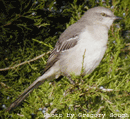The continuing saga of the uninvited nest seems to have come to an end. The hatchlings have died.
Category Archives: Research with animals
The consequences of our choice.
The choice in question was whether to try to relocate a nest full of eggs in a tree whose number is almost up. With your help, we decided against relocation. Moreover, we’re ready to delay removal of the tree as long as might be necessary until the nest is vacant.
Today’s developments documented below the fold.
Uninvited nest update.
 Yesterday I asked for advice about how to deal with a nest of eggs that presents itself in an inopportune place (a tree slated to meet a gruesome end in a whisper-chipper) at an inopportune time (mere days ahead of when we finally launch our backyard overhaul). The consensus among commenters who professed knowledge of or experience with birds in the wild seems to be that there is no promising way to relocate the nest without scaring the mama bird away and leaving the eggs cold and orphaned. Given that the whole point of moving the nest would be not to throw out the baby birds with the despised tree, this outcome would be sub-optimal.
Yesterday I asked for advice about how to deal with a nest of eggs that presents itself in an inopportune place (a tree slated to meet a gruesome end in a whisper-chipper) at an inopportune time (mere days ahead of when we finally launch our backyard overhaul). The consensus among commenters who professed knowledge of or experience with birds in the wild seems to be that there is no promising way to relocate the nest without scaring the mama bird away and leaving the eggs cold and orphaned. Given that the whole point of moving the nest would be not to throw out the baby birds with the despised tree, this outcome would be sub-optimal.
A call for advice: nest relocation?
I need to call on the collective wisdom of the internets to address an issue in my back yard.
We have this tree in our back yard. It’s a pretty awful tree. It was probably a living Christmas tree that the people who lived here before us planted, but it’s in a really bad location (from the point of view of being able to use the rest of the yard sensibly), and it’s ugly, and it’s also sharp and pointy.
We want it gone. Indeed, finally, after about a year of planning, we are ready to have it removed (replaced with a Fuyu persimmon tree, in a slightly different location) as part of a major back yard improvement project. Work is scheduled to start Monday.
But this week, a complication presented itself:
Good ethics, good science, and the question of whether some knowledge is poisoned.
In comments to a pair of posts about research with animals, some issues that are germane to the subject of research with human subjects have come up. In particular, they raise the question of whether scientists ought to use results from ethically flawed experiments. And, this question pushes the question of the extent to which ethically flawed research can still be scientifically sound.
Here, I want to dig into the first question, but I’ll only make a first pass at the second.
Animals in the lab, animals on the plate: trying to make sense of the muddled middle.
This week my students (the ones who you already know are so smart) and I talked in class about the ethics of research with animals. One thing that came up in these discussions is the likelihood that a lot of people hold internally inconsistent views when it comes to how we ought to treat animals.
More thoughts on the care of animals and students.
My post a couple days ago about Laurentian University’s lock-out of researchers from their animal care facility sparked some heated discussion in the comments. Also, it sparked an email from someone close enough to the situation to give me an update on the situations since December. The issue of how, ethically, to use animals in research, and of how the interests of animals and the interests of students should be balanced, seems to have touched a nerve. So, we’re going back in.
Institutional obligations to animals and to researchers.
Catching up on some news from Canada (yes, I’m really far behind on Canadian current events!):
At the end of last year, the administration at Laurentian University changed the locks to the research facility housing the animals used in research in the behavioural neuroscience program. The lock-out of researchers was initiated by the university’s Animal Control Committee (ACC) after that committee rejected all of the animal use protocols of one of the faculty members in the behavioural neuroscience program.
Apparently, the ACC judged the problems with the protocols siognificant enough to warrant shutting down the research altogether, since that’s what the lock-out accomplished. And now, some LU students are wondering how seriously the university takes its obligations to them.
